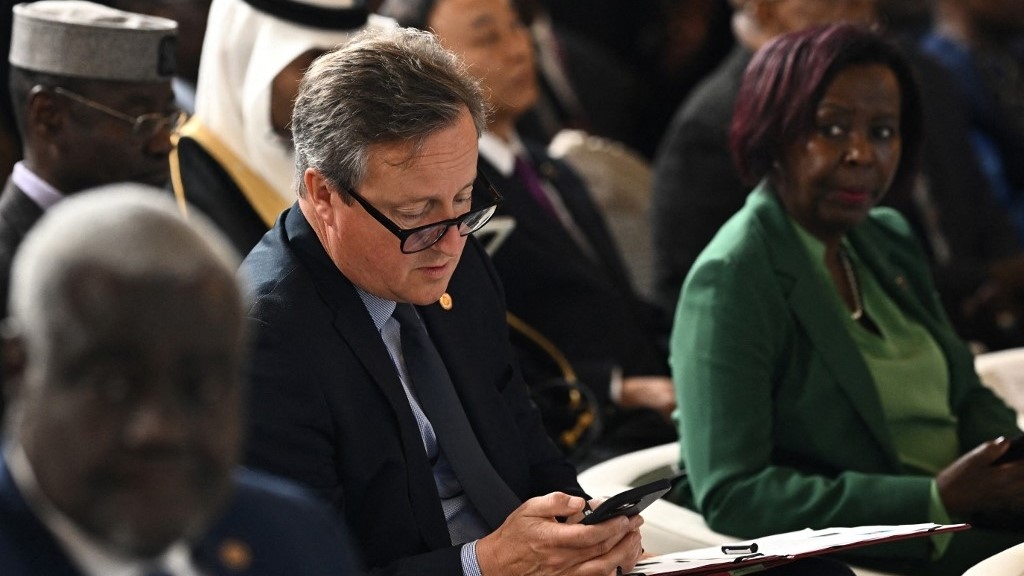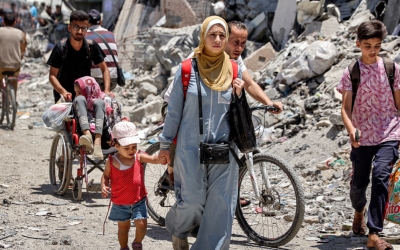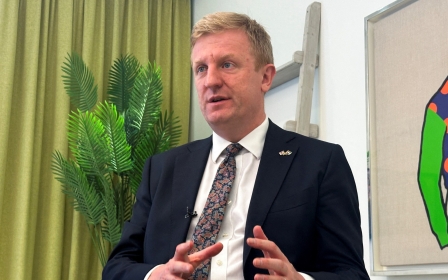War on Gaza: UK accused of obstructing ICC prosecution of Netanyahu

The UK has been accused of attempting to obstruct the prosecution of Israeli war crimes by delaying the International Criminal Court’s (ICC) decision on whether an arrest warrant can be issued against Benjamin Netanyahu.
In late May, ICC prosecutor Karim Khan filed an application for arrest warrants for Israeli Prime Minister Netanyahu and Defence Minister Yoav Gallant, as well as Hamas leaders Yahya Sinwar, Ismail Haniyeh and Mohammed Deif, for alleged war crimes.
Judges at the ICC ruled last Thursday that the UK can submit legal arguments in the case.
The UK, an ICC member state, filed a request in early June to provide written information on whether “the court can exercise jurisdiction over Israeli nationals, in circumstances where Palestine cannot exercise criminal jurisdiction over Israeli nationals [under] the Oslo Accords”, referring to the 1993 agreements between Israel and the Palestine Liberation Organisation (PLO).
The UK argues that since Palestinian authorities do not have jurisdiction over Israeli nationals under the accords, they cannot transfer jurisdiction to the ICC.
New MEE newsletter: Jerusalem Dispatch
Sign up to get the latest insights and analysis on Israel-Palestine, alongside Turkey Unpacked and other MEE newsletters
In February 2021, a panel of ICC judges ruled that the ICC had jurisdiction in the occupied Palestinian territories.
Chris Doyle, director of the Council for Arab-British Understanding, told Middle East Eye: “The UK government should not be interfering in the decisions of the ICC that it has already ruled.
“This forms part of an appalling record of facilitating what is almost certainly a genocide and not holding Israel to account for any of its actions.”
Oslo and the ICC's jurisdiction
The International Centre of Justice for Palestinians (ICJP) has described the UK’s request in a statement as a “transparent attempt to derail the pursuit of accountability for Israeli war crimes”.
According to the ICJP, “the contours of Oslo itself make clear that the agreement cannot bar the Court's jurisdiction in Palestine”.
The ICJP argued that Oslo’s provisions regulated the ability of Palestinian authorities to ensure that Israeli nationals complied with the law.
This means that Palestinian authorities still have the right to make laws and “to vest the ICC with jurisdiction”.
The UK’s argument would leave Palestinians able to appeal only to Israeli courts and legal officials, according to the ICJP.
“If the UK has a legitimate motivation for the safeguarding of legal process, the Foreign Office would and should use the means available to them, (including) first and foremost, the creation of a Special Tribunal constituted by the Security Council.”
The Foreign Office told MEE: “The UK believes that the Court has not yet engaged with the impact and effect of the Oslo Accords on jurisdiction in this case and we think it is imperative that they do so at any early stage of proceedings.”
Doyle said: "If Labour wins the elections on 4 July one of the first obligations of any government committed as it claims to international law should be to cancel this request."
MEE contacted the Labour Party and shadow foreign secretary David Lammy for comment but did not receive a response by the time of publication.
Lammy said on 21 May that a Labour government would back the ICC if it issues arrest warrants.
Middle East Eye delivers independent and unrivalled coverage and analysis of the Middle East, North Africa and beyond. To learn more about republishing this content and the associated fees, please fill out this form. More about MEE can be found here.





